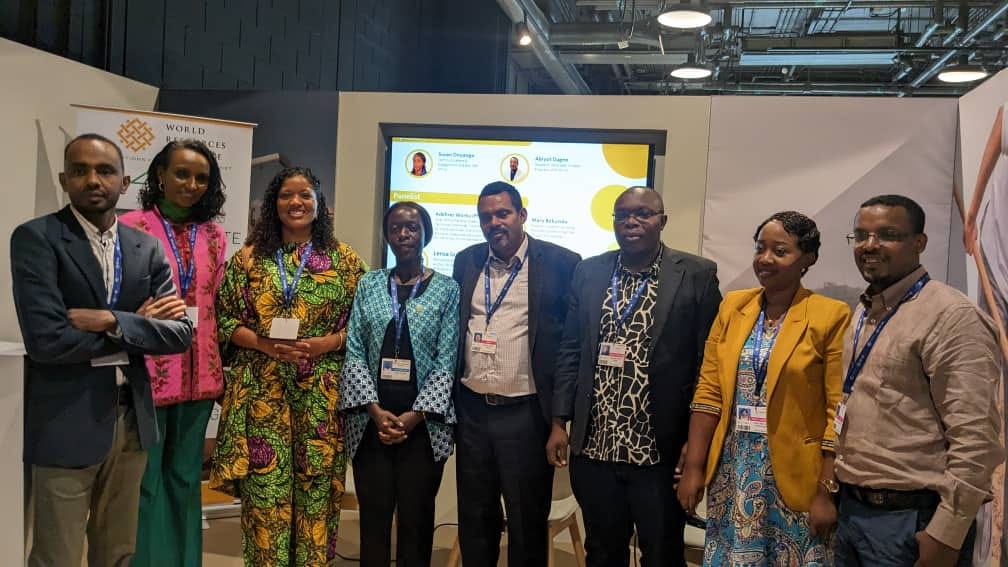News detail

Ethiopia's Community-Led Climate Adaptation Efforts Unveiled at COP28!
- by admin - 0 minutes
- 0
- 84
- 2 min read
- 343 words
Ethiopia's Community-Led Climate Adaptation Efforts Unveiled at COP28!
*******************************************************************************************************************************
DUBAI, United Arab Emirates, December 6, 2023
Today at COP28, the Ethiopian Pavilion hosted a groundbreaking presentation on "Locally Led Adaptation for Climate Resilience and Green Income Opportunities in Ethiopia." The World Resources Institute (WRI) Africa, in collaboration with the Danish Church Aid (DCA), showcased a case study showing how communities in Bale and Wag Hemra are taking charge of their own destiny in the face of climate change.
The study emphasized the need for a strong focus in resilience strategies, spotlighting the positive impact of locally led adaptation practices on communities. Notably, these initiatives helped ensure food security and livelihoods, representing a substantial departure from conventional climate response methods. Sustainable natural resource management practices, encompassing tree planting, soil conservation, and water harvesting, clean energy and green incubation emerged as indispensable components contributing to the overall resilience of natural resources. Furthermore, urges the need for strong focus on inclusive empowerment, incorporating marginalized groups such as women and youth. The case underscores the importance of actively engaging communities in decision-making processes, facilitating their role as architects of their own development and fostering positive change from within.
The panel discussion that ensued, featuring experts from WRI Africa, EFD, Dan Church Aid Uganda, ADA Consortium, Gudina Tumsa Foundation (GTF) and Elnet Group, further underscored the significance of community involvement. The discussion emphasized the pivotal role of communities in the success of locally led adaptation efforts. The discussion delved into policy integration, urging collaborative efforts among governments, donors, NGOs, and local communities to seamlessly incorporate findings into national and regional policies.
Addressing the perennial finance challenges in community-led adaptation initiatives, the panelists stressed the need for scalable solutions. The resounding call to action urged stakeholders to prioritize community involvement, integrate study recommendations into policies, and address financial obstacles hindering community-led adaptation investments.
As the event concluded, the spotlight turned to practical applications, urging governments, NGOs, and donors to integrate climate change education and support green tech innovations critical for sustainable practices.



